PakAlumni Worldwide: The Global Social Network
The Global Social Network
Bollywood Needs Pakistan Market to Grow Sales
Amid the Hindu Nationalists calls for sending Pakistani actors home, what is being overlooked is the fact that Bollywood needs Pakistan more than Pakistan needs Bollywood. Why? Let me explain.
Pakistan is Bollywood's second biggest foreign market. Last year, Pakistan's box office receipts jumped by 28% while India's domestic box office collection fell 6.7%.
Decline in Bollywood's revenue at home is forcing the Indian movie industry to look to Pakistan for growth. Part of the Indian strategy is to feature Pakistani actors and artists in its productions to increase Bollywood's appeal to Pakistan's growing moviegoers market.
The money earned by Pakistani actors working in Bollywood is minuscule compared to the business Bollywood films are doing in the rapidly growing Pakistan market.
Pakistani Actors in Bollywood: Fawad Khan, Mahira Khan, Mawra Hocane |
Bollywood ticket sales fell by 6.7% to INR 2,568 crore ($385m) from 2014’s total of INR 2,754 crore (US$413), according to figures published by India's Business Standard. Alarmed by declining sales, Disney Studios have decided to pull out of India.
After suffering huge losses at the domestic box office, the most recent one being Ashutosh Gowariker's Mohenjo Daro, Disney India - the company formed after Disney acquired controlling stake in UTV - has pulled the plug on all things Bollywood. Instead, Disney will only focus on its Hollywood films distribution, licensing and merchandising business in India, according to India Today.
On the other hand, Pakistani cinema, though small, is growing very rapidly with the explosive growth of multiplex theater screens. Pakistan's "The News Sunday" estimates that box office receipts in the country jumped 28 per cent in 2015 as compared to 2014 and this figure is only expected to grow in coming years. On Eid ul Azha this year, the top 3 highest-grossing films were all produced in Pakistan, according to EasyTickets.pk.
Here's how Indian media and entertainment analyst Akar Patel describes Bollywood's business opportunity in Pakistan:
"In Pakistan, there is a big market for Indian movies in their multiplexes. For decades this revenue was lost to Bollywood because the movies were pirated. Under former president Pervez Musharraf, the official screening of movies was allowed, benefiting both nations. Today all Bollywood movies are shown there. Unfortunately, the current state of ties between the two countries has been allowed to deteriorate so much that we should not be surprised if Musharraf's wise decision is reversed."
It is a win-win arrangement with Pakistani artists working with their Indian counterparts in Indian movies and increasing Bollywood revenue from Pakistan market.
If the anti-Pakistan rhetoric and the attacks on Pakistani artists in Mumbai continue, it is very likely that Pakistan will respond by banning the showing of Indian films in a rapidly expanding market market for Bollywood entertainment. In addition to increasing estrangement between the two neighbors, stopping cooperation and collaboration will be a significant blow for the entertainment industries in both India and Pakistan.
Related Links:
Peepli Live Destroys Indian Myths
Indian Bollywood Seeks Cultural Dominance
-
Comment by Riaz Haq on January 11, 2020 at 5:26pm
-
BBC News - #Bollywood and #Lollywood come together in #Scottish film. "The idea is to bring the two communities together from #India and #Pakistan. They can't work together in their own countries so we have to bring them over here." #SouthAsia #movie https://www.bbc.com/news/uk-scotland-51024254
A new film shot entirely in Scotland has brought in talent from Pakistan and India to showcase the best of Bollywood and Lollywood movies, according to its director Zulfikar Sheikh.
He said he had produced 17 serial dramas for Pakistani TV, all set in Scotland, and had always wanted to make a film.
"The idea is to bring the two communities together from India and Pakistan," he says. "They can't work together in their own countries so we have to bring them over here."
The film, Sacch, opens at selected UK cinemas, including Glasgow's Silverburn Cineworld, from Friday.
The film is scripted by Bollywood screenwriter Kumud Chaudhry and has dialogue by Pakistani playwright Haseena Moin.
Moin's only credit on a Bollywood film was Raj Kapoor's Henna, which was released in 1991.
The film was a box office success and was chosen as India's entry for the Best Foreign Language Film at the Oscars but Moin removed her name over tensions between Muslims and Hindus after a mosque bombing.
What are Bollywood and Lollywood?
Bollywood is the nickname given to much of the Indian film industry.
The B comes from Bombay (now known as Mumbai), the base for the Indian Hindi-language film industry.
Bollywood makes up to 800 films a year - twice as many as Hollywood.
The most well-known type of Bollywood film is "masala" which combines songs, dances, love triangles, comedy and dare-devil thrills.
The scripts are usually written in an unadorned Hindi-Urdu, known as Hindustani, which would be understood by the largest possible audience.
Much of the Pakistani film industry has traditionally been based in the city of Lahore and is now often referred to as Lollywood.
First Pakistani film
The new film is produced by the director's wife, Tasmina Ahmed Sheikh, the former SNP MP for Ochil and South Perthshire.
She says: "As far as we know this is the first Pakistani movie shot in Scotland."
Ms Sheikh is the daughter of an academic and an actress who toured with the Royal Shakespeare Company.
She grew up in Edinburgh and studied law at Strathclyde University in Glasgow.
She says that soon after her marriage in 1993 she appeared in Des Pardes, a drama portraying Scottish-Asian life, directed by her husband.
After that she returned to the law, working as a solicitor and later as a politician.
Most recently, she had been a producer and presenter on The Alex Salmond Show on RT.
She has now returned to working with Zulfikar, producing a "feelgood" movie in the best traditions of both Indian and Pakistani films.
"We wanted to produce something that young Scottish Asians could watch as well as an elder generation and indigenous Scots," she says.
-
Comment by Riaz Haq on March 9, 2020 at 8:00am
-
Meet Pakistani cinema's stars of tomorrow
From Eman Suleman to Rehmat Ajmal and Parisheh James, here are some up and coming names
https://gulfnews.com/photos/entertainment/meet-pakistani-cinemas-st...1 of 15
Last year, there were some definitive trends set for the entertainment industry in Pakistan. Where there was a surge in production, an influx of talent was witnessed. As the first quarter of the year comes to a close in a few weeks, Gulf News tabloid takes the occasion to look at some of the most dynamic new entrants in the fields of acting and modelling. They are young, educated and self-assured individuals who are game for challenges and have no care for stereotypes, just as the millennials are expected to be. No wonder they are the industry’s best bets for the new decade. In no particular order…Image Credit: Supplied
2 of 15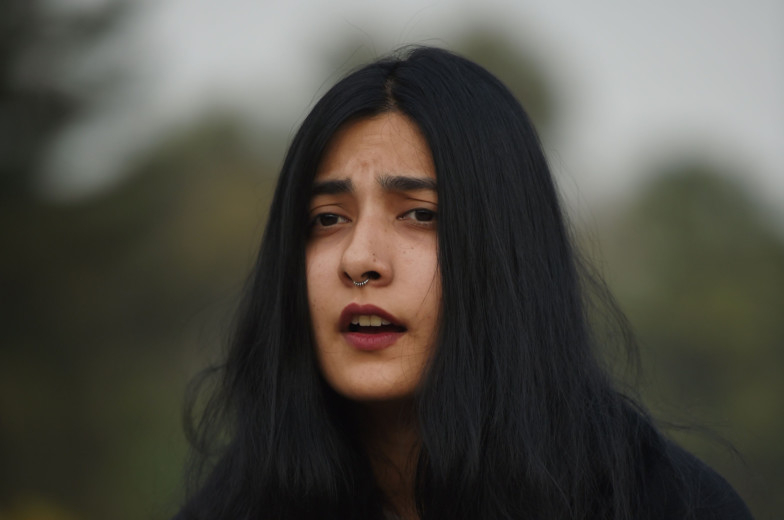
Eman Suleman, model & actor: Model turned actor Eman Suleman exudes an old-world charm and at the same time has the disposition of a progressive, 21st century feminist. Perhaps, that’s what attracted acclaimed Indo-Canadian filmmaker Mira Nair to her when she was casting for BBC 1’s period play, ‘A Suitable Boy’, based on Vikram Seth’s novel of the same name. Suleman had to opt out because the project required her to shoot in Agra, India. At her much-talked-about wedding recently, she made the most unconventional — albeit gorgeous — Pakistani bride, for she refused to be a passive participant in the proceedings, as is the common practice. And when she went for a buzz-cut, it turned many a head. Her choices in work are no less atypical: she would rather act in film students’ thesis projects than in some mindless mainstream biggie which isn’t up her alley. This year she will make an appearance in Asim Abbasi’s web series, ‘Churails’, besides an English-language indie production. She is also due in the offbeat feature, ‘Zindagi Tamasha’, which is her second project with Sarmad Khoosat after 2018’s ‘Aakhri Station’. The film won the coveted Kim Jiseok Award at Busan last year, but back home it has hit a major roadblock with the censor board.Image Credit: AFP3 of 15
Ali Kureshi, model & actor: Ali Kureshi’s defined jawline and lean, muscular physique have top menswear brands in Pakistan beating a path to his door — at Hum Bridal Couture Week ‘19, he walked the ramp for 10 different couturiers. At 6’ 2’, Kureshi stands taller than most male models in the industry. Though, he wouldn’t claim credit for anything except his body transformation, having slogged his way up from being a chubbier version of himself in his mid-twenties, to a fitness and Yoga fanatic (he even calls himself a “Yogi”). Kureshi recently gave a shot at acting in writer-director Sarmad Khoosat’s hotly-anticipated feature, ‘Zindagi Tamasha’. He doesn’t believe in comparing one’s journey with anyone else’s, because “that’s when you start to lose faith in yourself.” He is also secure enough to say, “I am NOT perfect!”Image Credit: Supplied4 of 15
Amar Khan, actor & screenwriter: It takes a young, pretty woman real guts to play the witch in her debut TV show. But Amar Khan is a bit of an anomaly. A film graduate from BNU, Lahore, Khan took up the eponymous ‘Belapur Ki Dayan’ (2018) most fearlessly, following it up with the period drama ‘Ghughi’, where she played a Hindu girl, and Dil-e-Gumshuda, as the antagonist. Her brilliant repertoire of work may be attributed to her training in theatre which had also led her to India where she attended masterclasses with film greats such as Shyam Benegal and Naseeruddin Shah. Her mother, Fareeha Jabeen, a noted TV actress, has been an influence too. This year, Khan will be seen in a movie, ‘Dum Mastam’, which is also scripted by her. Though, she studied to be a filmmaker, direction isn’t on the cards for now — “not in the next five or six years,” she says.Image Credit: Supplied5 of 15
Momin Saqib, actor, activist & Instagram blogger: UK-based Momin Saqib, 26, admits to having “multiple personalities.” His much-loved “online family” (as he fondly addresses them in his Snapchat/Instagram stories) of nearly 200,000 followers looks up to him as their friend, philosopher and guide; while for some he’s a high-energy entertainer whose videos luckily broke the internet (remember the one where he’s ranting about Pakistani cricketers overindulging themselves ahead of a World Cup match that affected their performance?). The party circles of London see him as more of a socialite, while those who’ve attended his TED talks, perceive him as a motivational speaker. And if that’s not enough, people in the media are already rooting for his ability to act. So far Saqib has only signed on noted actor-director Ehteshamuddin’s feature film, ‘Dum Mastam’, shooting for which is currently underway in Karachi. He is also considering joining news anchor Waseem Badami’s popular show on ARY, ‘Har Lamha Pur Josh’.Image Credit: Supplied6 of 15
Mushk Kaleem, model: Smart and elegant, Mushk Kaleem is redefining standards of beauty in an industry obsessed with fair skin. Over the past two years since she began to model, she’s already been adjudged the Best Emerging Model at the LUX Style Awards and Rising Star at the Hum Style Awards. Make-up artists, fashion designers and photographers vouch for her amazing range and malleable looks. A glance at her portfolio on Instagram reveals how there isn’t an outfit or a style that she can’t pull off. But for 25-year-old Kaleem, a business graduate from IBA, Karachi, fashion modelling was more of a side hustle until, compelled by the financial situation at home, she quit her day job at a corporate firm. Her reason: “It pays better money.” Today, she has opened and stopped shows at bridal couture weeks, besides walking the runway at the Milan Fashion Week ‘19 for Italian designer Stella Jean. More recently, she shot a solo campaign of Elan, as the brand’s new face, in Kenya. This year she is looking forward to doing “more fashion weeks and brand endorsements.” She makes it clear that she “would never promote fairness products!”Image Credit: Supplied7 of 15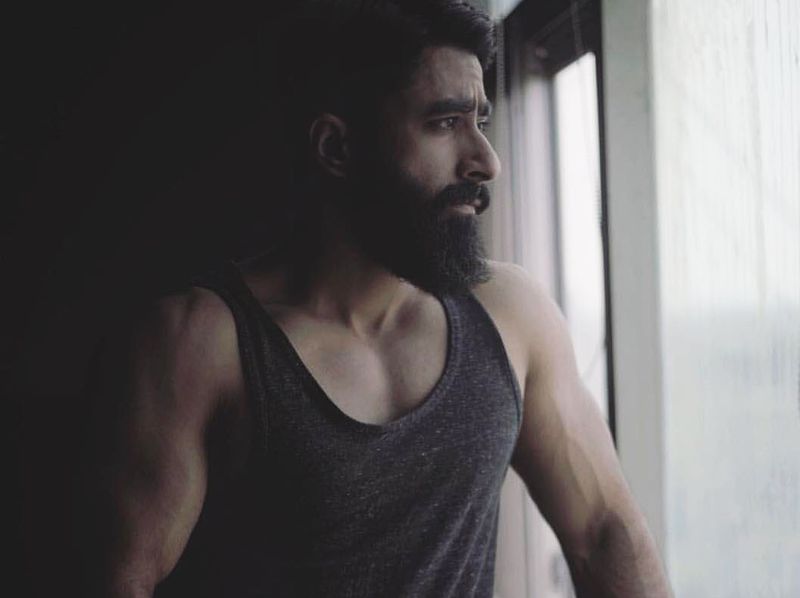
Hamza Khawaja, actor & fitness trainer: There’s a lot more to fitness trainer cum model and actor Hamza Khawaja than meets the eye. A graduate in Anthropology from LUMS, Khawaja says he’s “been an artist all my life — I paint and sketch.” Acting is another hobby he’s pursued since school. Later, he worked in a few short films. A chance audition for Sarmad Khoosat’s feature, Kamli, won him the lead part opposite an acting stalwart like Saba Qamar. A fan of method acting, Khawaja deep-dived into his role which “is completely unrelated to what I do or who I am.” He was duly helped by the intensive reading sessions and rehearsals that had gone before the shoot. The film is slated for an Eid Al Fitr release. Meanwhile, Khawaja is gearing up for an international bodybuilding competition. He’s already competed as Mr Islamabad. He also founded an online fitness start-up, called ‘Reconstruct.’Image Credit: Supplied8 of 15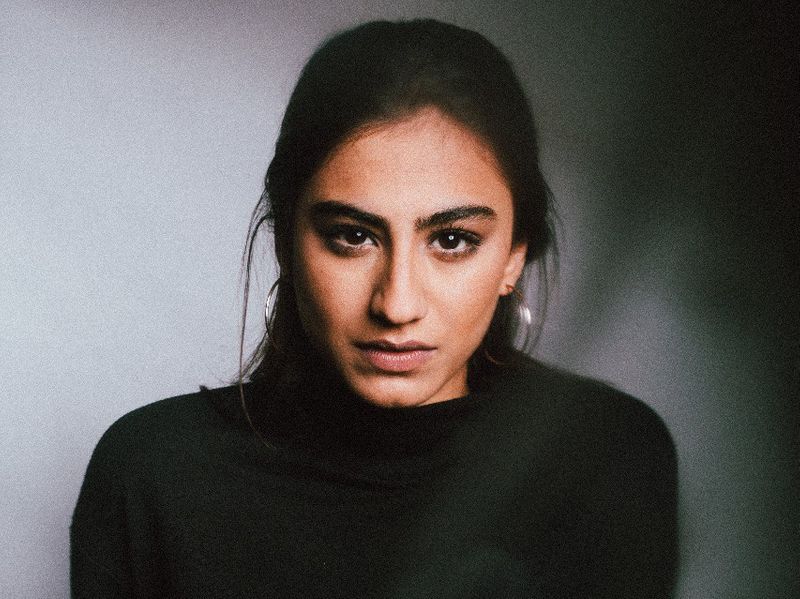
Rehmat Ajmal, model, actor & entrepreneur: Actor, fashion designer and model Rehmat Ajmal is one of Pakistan’s brightest showbiz hyphenates from the newer lot. In 2018, a modelling gig for top couturier Zara Shahjahan, while Ajmal was studying Textile Design at NCA, Lahore, “got the ball rolling” (in her own words). After graduation, she launched her online store, ‘Rehstore,’ where she puts out hand-painted and digitally printed saris. She calls it her “baby project.” Her first acting assignment — that is, if you discount her cameo as Fawad Khan’s fan-girl in ‘Jawani Phir Nai Ani 2’ (2018) — in the recently concluded mega (controversial) TV show, ‘Meray Paas Tum Ho,’ got noticed big-time. It wasn’t a meaty role, but Ajmal breathed life into what would otherwise have gone down as another one-dimensional supporting character we are used to seeing on prime-time television.Image Credit: Supplied9 of 15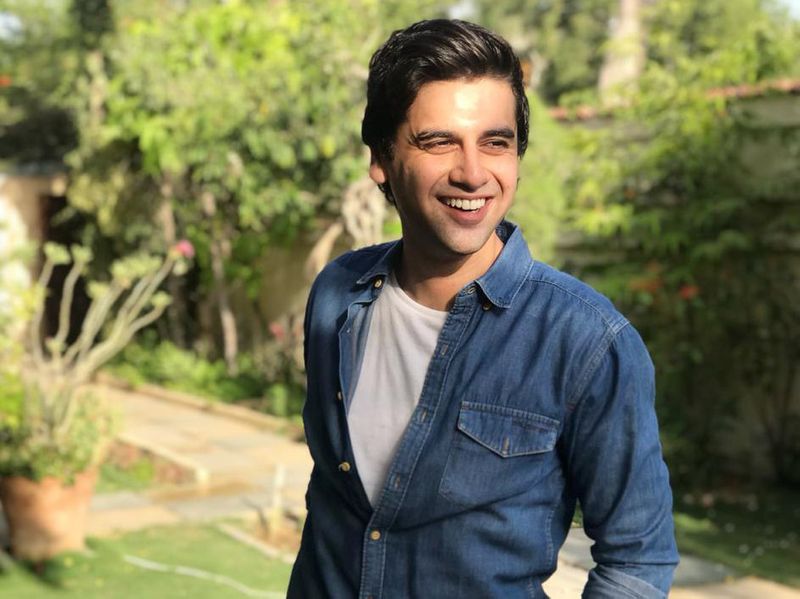
Raza Talish, actor: Last year, Raza Talish’s ‘child-man’ act as Mithu, the kohl-eyed, dhoti-kurta-wearing mama’s boy from a small town, with a funny Urdu accent and a pronounced romantic bone, in the sequel to the Ramadan special play ‘Suno Chanda’, scored big with the audiences. So much so that people took it to be his maiden venture, even though he had earlier appeared in a TV serial, ‘Tabeer’, albeit briefly. Offers of acting began to pour in, but this wunderkind had the wisdom to wait for the right roles where he wouldn’t be guilty of repeating himself. Today, there are a host of projects where he’s getting top billing. Up first are two web series for Zee5 — ‘Dhoop Ki Deewar’ and ‘Abdullahpur Ka Devdas’. In Dhoop…, he plays a Pakistani “fauji jawaan” posted along the Line of Control, who is up against Ahad Raza Mir’s Indian soldier; and in ‘Abdullahpur’…, he slips into the skin of a heart-broken, melancholy-prone lover. MD Productions’s ‘Dil Dukhta Hai’ will see him play a family man, whereas ‘Mushk’, which is directed by his father, Aehsun Talish, gets “a little dark.”Image Credit: Supplied10 of 15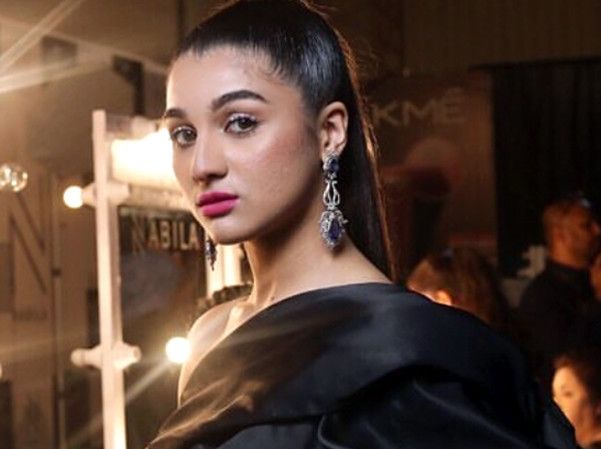
Parisheh James, model & actor: Parisheh James is decidedly Pakistan’s youngest fashion model. Currently pursuing her degree in Media and Communications at a university in Canada, James began modelling at age five. Her first ramp walk happened in 2003. She also appeared in a few TV commercials before she left for her studies, only to return years later as top couturier Deepak Perwani’s show opener. The proud daughter of former model turned entrepreneur Frieha Altaf, James recently cameo-ed in 2019’s blockbuster movie ‘Parey Hut Love’. What with her spontaneity and a fresh charm, she was likened to Bollywood’s youth icon Alia Bhatt. This year, she is “looking forward to getting more involved in acting and dipping my feet into the radio world” with her own podcast.Image Credit: Supplied11 of 15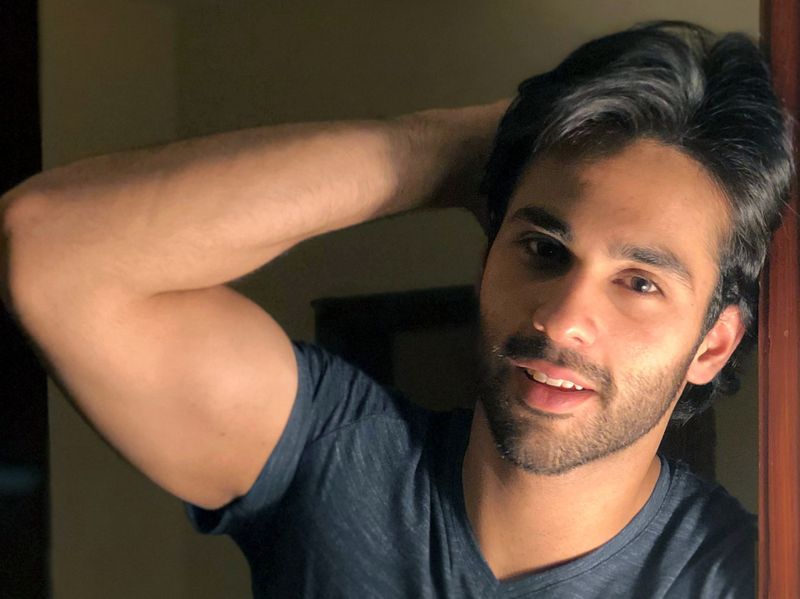
Ameer Gilani, actor: Ameer Gilani often gets dubbed as the younger version of Bollywood heart-throb Varun Dhawan. Though, it’s a comparison this 24-year-old Islamabad-based actor, with just one soap serial (Loag Kya Kahenge; 2018) and a few commercials to his credit, does not know is flattering. “Because I don’t watch a lot of local or Indian stuff,” he explains. His role model is his grandfather, Syed Iftikhar Hussain Gilani, a former law minister in Benazir Bhutto’s government who “built an empire of his own!” Ameer also studied Law before he faced the camera. But today, he’s bitten by the acting bug. In his next TV play, Sabaat, he has a stellar role opposite Mawra Hocane. He even calls it “my relaunch!”Image Credit: Supplied12 of 15
Agha Talal, actor: In 2018, Agha Talal, the romantic lead in Hum TV’s ongoing soap, ‘Soya Mera Naseeb’, came close to doing a project that would have changed his fortunes overnight. It was a big-budget movie, helmed by Nadeem Baig, one of Pakistan’s most successful directors, and was supposed to star Bollywood’s ‘Sultan’ Salman Khan in a special appearance. According to sources, Khan had given the nod, and his part was to be shot in Dubai, but the volatile relations between India and Pakistan badly hit the project, and it was shelved. Talal turned to television. While Soya… has earned him a fan base, and Geo TV’s ‘Munafiq’ is minting TRPs, the handsome actor has already begun work on a short film, tentatively titled ‘Seema Aur Saiqa’.Image Credit: Supplied13 of 15
Zainab Shabbir, actor: Where most of her fellow actresses would put on greasepaint to look the ‘fairest of them all,’ Zainab Shabbir gladly coloured her skin a few tones darker for the 180-episode soap, ‘Sanwari’, her first major assignment on TV. A Commerce graduate, she says she could’ve picked a glamorous part instead but she didn’t feel compelled to do so: “I am not insecure on that front. I believe that good work will take you places anyway.” Indeed, Sanwari proved to be a milestone in her career. The emotional trajectory of her character in the drama serial, as well as her appearance as a plain-clothed, middle-class girl who does not step out of the house without a shawl and headscarf, are reminiscent of Sanam Saeed’s Kashaf in the iconic play, ‘Zindagi Gulzar Hai’ (2012). Fortunately, ‘Sanwari’ pretty much did for Shabbir what ‘Zindagi…’ had done for Saeed: it fetched her important acting roles such as LTN’s ‘Emaan’ where she played the titular character. Next, she is due on Geo TV’s ‘Meharposh’, alongside top stars Ayeza Khan and Danish Taimoor.Image Credit: Supplied14 of 15
Mahmed Ali, model: In his photoshoots where he’s sporting a stubble and medium-short hair, Mahmed Ali strikes you as a George Michael doppelganger, particularly from the legendary British pop singer’s early Wham! days. Though, this isn’t precisely why the 22-year-old fair-skinned Kashmiri is making noise as one of Pakistan’s hottest — not to forget, youngest — male models today. Ali has headlined major fashion campaigns within no time, and shared credits with supermodels like Emaad Irfani, Aimal Khan, and Shahzad Noor. 2020 has already begun on a promising note for him — he recently wrapped up shoot for a coveted textile brand where he was pitched next to senior actor and producer Humayun Saeed. Judging from the few behind-the-scene images that got leaked on social media, the two looked complete royalty, with Ali’s youthful freshness and bright disposition complementing Saeed’s maturity. Ali isn’t hung up on acting. But his mentor — fashion photographer Azeem Sani — believes he is “a complete film material!”Image Credit: Supplied15 of 15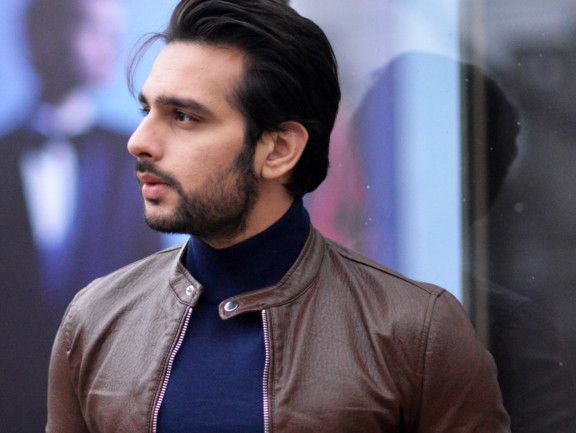
Usama Khan, actor: It wasn’t plain luck that Usama Khan lifted the Best Actor (Soap) trophy for his debut show, ‘Sanwari’, at the Hum Awards last year. A charming young man from Lahore, who studied ACCA, Khan had won over the voting public as well as jury members alike for his spirited performance in what remains Hum TV’s longest running soap. With ‘Bay Zuban’, where he played a negative character, and ‘Ghalti’, opposite Hira Mani, he cemented his position in the industry. This year, he has a slew of high-profile shows coming out. Topping them is ‘Tamanna’ on Geo TV, with Haroon Shahid (of ‘Verna’) and Nausheen Ahmad; which will be followed by ‘Urraan’, with Aijaz Aslam and Kinza Hashmi. Besides, Khan recently began shooting for ‘Chhalawa’, a 33-episode horror play, directed by Shamoon Abbasi. He is humble enough to say, “I’ve a long way to go!”Image Credit: Supplied
-
Comment by Riaz Haq on June 10, 2021 at 7:41am
-
Can #India's #Bollywood Survive #Modi? #Muslims have always had a disproportionate influence in Bollywood. Actors such as Shah Rukh Khan, Salman Khan, and Aamir Khan have towered over the landscape of #Indian #cinema for the past 30 years. #BJP hates it. https://www.theatlantic.com/magazine/archive/2021/07/can-bollywood-...
“Everybody is just shit-scared and wanting to lie low,” a woman who is closely involved with the industry told me recently. “This is such a vindictive government.” The day before we spoke, tax authorities had raided the home and offices of one of the country’s finest directors, along with those of an actor he worked with. Both are outspoken government critics, and the raid was widely seen as politically motivated.
As we talked, a director friend sent me a vanishing message on Signal, the encrypted-communications platform, about a case before India’s Supreme Court. A senior Amazon executive in India was facing arrest, along with others, for a nine-part political drama called Tandav, which includes a portrayal of the Hindu god Shiva that some found objectionable. The director of the series had apologized, and removed the offending scene. And according to the message I received, the court had declined to offer protection (a decision it later revised). “The problem,” one senior executive for a major streaming service told me later, “is that the director is Muslim and the actor is Muslim.”
-------------------
Bollywood has been central to the creation of India’s national myth. Its movies are full of dance and song, but their genius lies in the ability to weave serious issues—social justice, women’s rights, gay rights, interreligious marriage—into entertainment. Bollywood films are at once commercial and political. They epitomize the pluralism of India.
And in today’s political climate, that makes them a target. In ways reminiscent of the old Hollywood blacklist, the government of Prime Minister Narendra Modi and his Hindu-nationalist Bharatiya Janata Party (BJP) is using powerful tools to curtail the creative freedom of Bollywood—in particular the influence of Muslims, who have an outsize presence in the industry. The measures pushed by the Modi government include indiscriminate tax investigations, trumped-up accusations against actors and directors, intimidation and harassment in response to certain movies and TV shows, and the chilling rap of law enforcement at the door. Fearing worse to come, Bollywood has remained mostly silent in the face of the government’s catastrophic response to the coronavirus pandemic.
-
Comment by Riaz Haq on November 26, 2021 at 10:34am
-
13 years after 26/11, #India's #Bollywood star Amitabh Bachchan wants better ties with #Pakistan: "No single act of terror must be given the power to destroy the interconnectedness of our stories, our plural solidarities" #Pakistan #Hindutva #Islamophobia https://indianexpress.com/article/opinion/columns/13-years-26-11-at...
Mumbai had been attacked before, but not like this. This was a choreographed sequence of strikes, using hand-held weapons, by 10 terrorists who had come in by the sea. This time, Ground Zero was not a place, it was an arc. It was horror made for the age of the instantaneous spectacle, it foreshadowed the era where we define ourselves by our constant posts of image, text and video.
---------
Thirteen years later, the question is, how do we pay the real tribute to the 166 people who died in the 26/11 attacks, in Mumbai, the one they truly deserve? How do we move out of the shadows of that paralysing moment? Are we, who survived in Mumbai and in India, free to tell new stories?
The reality is that 26/11 has had a long afterlife, and it has got entangled with the tumultuous history that still weighs down the Subcontinent. It is not yet clear that we have skirted all the traps it set for us. The danger was, and it still is, of letting ourselves be defined and deformed by fear, of making suspicion a habit, a guiding force for our institutions, and part of our political common sense.
For the last many years, I have been privileged to join The Indian Express and its community of readers in marking this day and each year, we celebrate the spirit of survival and understanding. Each year, I discover that the power of survival is linked to the power of humanity, of our collective commitment that we shall not let the terrorists define who we become.
This time, too.
True, 26/11 brought home the urgent need to shore up our policing systems and shake off the institutional lethargy that had set in on internal security. True, that we have to be lucky every day while the terrorist had to be lucky just once.
And yet, the danger is of letting the language and mantra of security spread and grow, till “we” are locked in constant and mortal combat with “them”, till accusation becomes more believable than proof, and only the spectres are clear and present, while everything else is looked upon as uncertain and subject to verification.
-
Comment by Riaz Haq on October 18, 2022 at 4:47pm
-
‘The Legend Of Maula Jatt’: #Pakistani Epic Sets Global Opening Weekend Record. Opening on over 500 screens in 25 markets, the action fantasy grossed PRK 51cr ($2.3M) globally, a new benchmark launch for a Pakistani title worldwide.#MaulaJatt https://deadline.com/2022/10/the-legend-of-maula-jatt-pakistan-glob... via @Deadline
A reboot of the 1979 cult Punjabi classic, Maula Jat, Bilal Lashari’s The Legend of Maula Jatt is coming off of a record-breaking weekend for a Pakistan-made or Punjabi-language film. Opening on over 500 screens in 25 markets, the action fantasy grossed PRK 51cr ($2.3M) globally, a new benchmark launch for a Pakistani title worldwide. Check out the trailer below.
The movie (which The Guardian called Game of Thrones meets Gladiator) follows the titular Maula Jatt, a fierce prizefighter with a tortured past who seeks vengeance against his arch nemesis Noori Natt, the most feared warrior in the land of Punjab. Loyalties are challenged and families torn apart in an epic tale of truth, honor and justice. Fawad Khan (who appeared in Disney Plus series Ms Marvel), Mahira Khan, Hamza Ali Abassi and Humaima Malik star. Brian Adler (Avatar: The Way of Water, Avengers: Endgame) served as VFX supervisor.
From Encyclomedia and Lashari Films in association with AAA Motion Pictures, and overseas distributor Moviegoers Entertainment, this is said to be the largest-mounted Pakistan-made, Punjabi-language film to date.
In Pakistan, it took $517K, and in the UK picked up $355K from 79 locations. The latter is the highest opening weekend for any Pakistani or Punjabi film in the market where it entered at No. 9 on the chart.
In the U.S., The Legend of Maula Jatt grossed $290K and in Canada $235K, kicking off at No. 6. The UAE saw a No. 1 start with over $515K. In Australia, it opened at No. 6 with $160K. Other releasing markets included Norway, Germany, Netherlands, Spain and South East Asia.
The filmmakers tell us demand has been extraordinary with exhibitors adding screenings throughout the weekend and into the week.
Lashari — who directed, co-wrote, lensed, edited and produced the movie — enthused, “I’m beyond overwhelmed by the love the film has received from audiences and critics alike the world over. We are so proud that The Legend of Maula Jatt has been instrumental in putting Pakistan-made cinema on the global map as it continues to win over hearts in theaters across the world.”
Producer Ammara Hikmat said, “The Legend of Maula Jatt has been our labor of love for a number of years. The pandemic came and returned but we knew we had to hold out for a theatrical release, as the film is undoubtedly a big screen experience… We’re so delighted that our film has broken previous records and set a new benchmark for Pakistan-made cinema, loved and lauded not only domestically but by audiences and critics globally.”
Comment
- ‹ Previous
- 1
- 2
- Next ›
Twitter Feed
Live Traffic Feed
Sponsored Links
South Asia Investor Review
Investor Information Blog
Haq's Musings
Riaz Haq's Current Affairs Blog
Please Bookmark This Page!
Blog Posts
Pakistanis' Insatiable Appetite For Smartphones
Samsung is seeing strong demand for its locally assembled Galaxy S24 smartphones and tablets in Pakistan, according to Bloomberg. The company said it is struggling to meet demand. Pakistan’s mobile phone industry produced 21 million handsets while its smartphone imports surged over 100% in the last fiscal year, according to …
ContinuePosted by Riaz Haq on April 26, 2024 at 7:09pm
Pakistani Student Enrollment in US Universities Hits All Time High
Pakistani student enrollment in America's institutions of higher learning rose 16% last year, outpacing the record 12% growth in the number of international students hosted by the country. This puts Pakistan among eight sources in the top 20 countries with the largest increases in US enrollment. India saw the biggest increase at 35%, followed by Ghana 32%, Bangladesh and…
ContinuePosted by Riaz Haq on April 1, 2024 at 5:00pm
© 2024 Created by Riaz Haq.
Powered by
![]()

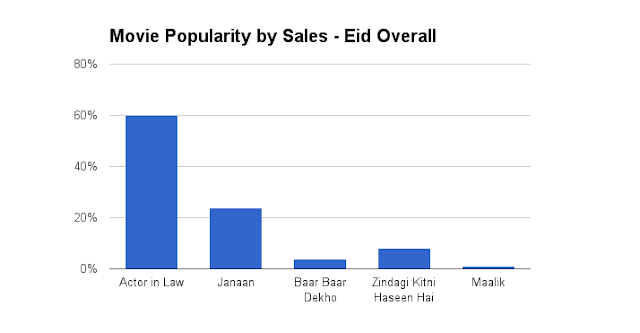
You need to be a member of PakAlumni Worldwide: The Global Social Network to add comments!
Join PakAlumni Worldwide: The Global Social Network